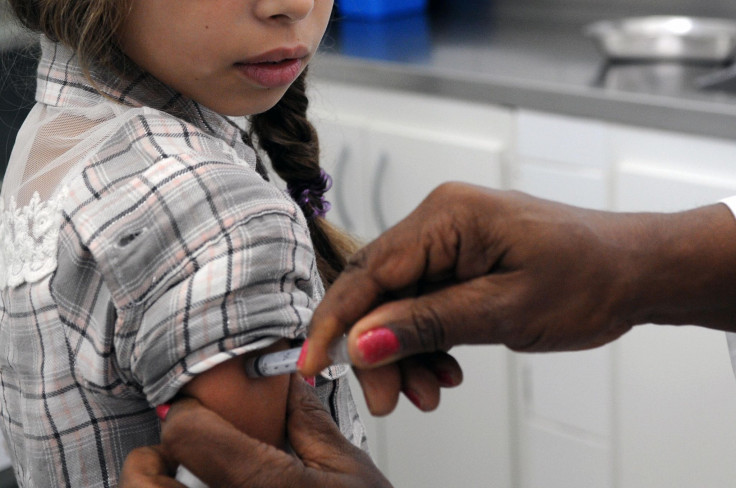HPV Vaccine Works, But Some Parents Say Not for My Kid

What if there was a way to prevent the most common sexually transmitted infection (STI) in the United States and, at the same time, prevent many related cancers? Would we jump at the opportunity to protect our children from future illness? Apparently not. According to a new study published in The Lancet Public Health, among the over 4 million children in the United States who had not yet been vaccinated against human papillomavirus (HPV), nearly 60 percent of the parents were not planning on starting the vaccination series at all. The number rises to more than 65 percent in the states of Idaho, Kansas, Michigan, Montana, Nebraska, North Dakota, Oklahoma, and Utah.
When the Food and Drug Administration (FDA) approved the first vaccine for HPV in 2006, many physicians believed this would help reduce the rates of HPV-related cancers. However, the vaccines are not proving as popular as they hoped, leaving many boys and girls vulnerable to HPV-caused cancers of the cervix, mouth and throat, anus, and penis.
Researchers from the University of Texas Health Science Center at Houston looked at surveys completed by over 80,000 parents or guardians of teens aged 13 to 17 years. They found that 30,558 of the teens were not vaccinated against HPV at all and 9,073 had only received the first dose but not the second. According to the Centers of Disease Control and Prevention, the vaccine is given in either two or three doses, depending on the age of the teen or young adult. The vaccine is recommended up to 26 years.
“The hesitancy of parents to protect their child against HPV is troubling because improving HPV vaccination coverage is our only option to curb the rising burden of cancers caused by this virus,” said Kalyani Sonawane, PhD, in a press release issued by the university. Sonawane is the study’s first and corresponding author and an assistant professor at UTHealth School of Public Health. “The silver lining here is that these reasons are addressable. Health care providers can play a vital role in combatting misinformation by educating parents about HPV vaccine safety and benefits, and they can also emphasize the importance of series completion.”
HPV Vaccines Can Prevent Certain Cancers
The CDC reports that there are about 34,800 HPV-related cancers each year in the U.S.; 24,886 among women and 19,113 among men. But experts estimate that full vaccination against HPV could protect both men and women from most of these HPV-related cancers. “The vaccine is over 99% effective if given when HPV-naïve,” Christine O’Connor, MD, told Medical Daily. O’Connor, who was not involved in the study, is the Director of Well-Woman and Adolescent Care in The Institute for Gynecologic Care at Mercy Medical Center in Baltimore. “The vaccine can and has been shown to reduce HPV infection, and related HPV disease, including HPV related cancers,” she added.
What Is Behind the Vaccine Reluctance?
The study authors listed the five most common reasons parents gave for not starting the HPV vaccine series:
- Safety concerns (22.8 percent)
- Not needed or not necessary (16.1 percent)
- Not recommended (12.2 percent)
- Lack of knowledge (9.5 percent)
- Already up-to-date (9.0 percent)
“I don’t fully understand the distrust regarding the HPV vaccine in the context of the anti-vax opinion as a whole, but particular to the HPV vaccine,” O’Connor said. “Parents have voiced concerns over safety, expressed concern that it is a “newer vaccine,” or made statements that their child doesn’t need it because they are not sexually active.” However, the vaccine is safe. It had a decade of pre-approval data before it was approved in 2006 and monitoring continues. O’Connor pointed out, “At this point millions of doses have been given, with a very good safety and efficacy profile. Also, the recommendations are the vaccine is given prior to any sexual contact, over 99% effective if given when recommended, the efficacy goes down as patients get older or have HPV exposure prior to vaccination.”
Interestingly, the researchers found that the refusal to initiate the vaccines occurred despite recommendations from the family’s healthcare provider. “This finding is troubling when compared with data from a 2010 NIS-Teen study; the proportion of parents with no intent to initiate the vaccine series despite recommendation from a health-care provider in 2010 was 43%,” they wrote. “The increasing proportion of parents who are reluctant to vaccinate their adolescents despite recommendation from a health-care provider reflects a strong and growing sentiment of hesitancy towards the HPV vaccine in the USA. The same study showed that in 2010 parental hesitancy towards other adolescent vaccines was relatively low compared with the HPV vaccine—16.1% for the tetanus, diphtheria, pertussis vaccine, 9.7% for meningococcal conjugate vaccines.”
If you have a child coming up to the age for HPV vaccines or you are a young adult who was not vaccinated, speak with your healthcare provider to learn more about the vaccination series and when would be the best time to start. It could save your life.
Published by Medicaldaily.com



























